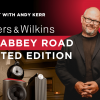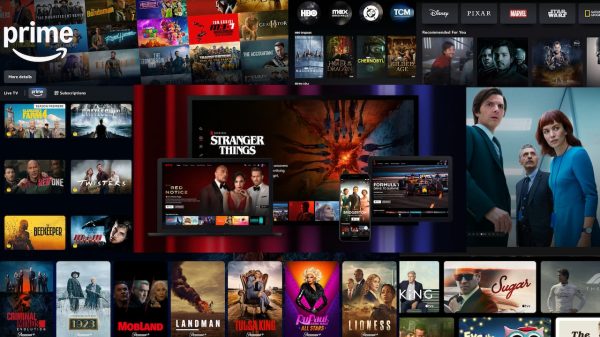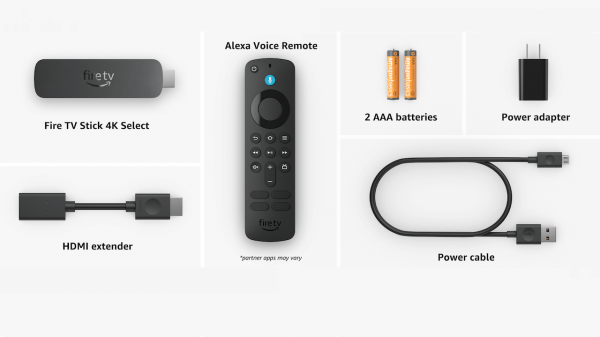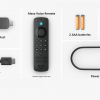With the new Cloud Drive and Cloud Player, Amazon.com is taking media management virtual, allowing consumers to store their music and other content remotely on Amazon's servers ("in the cloud" as it is known) and deliver it on demand to computers, tablets and smartphones.
The move highlights what is expected to be a mounting battle to provide consumers with online storage and management options for their digital content collections, as industry analysts expect Apple and other companies to launch similar music-related "locker" services. In fact, on May 10, Google launched a cloud music service called Music Beta. Like Amazon's effort, Google is looking to manage music libraries and deliver them through the cloud. "There's no question that the proliferation of devices is making the ability to access your content from the cloud a big deal," Wharton management professor David Hsu says. "This will go beyond music."
Amazon's Cloud Drive is a storage service that allows consumers to save up to 5GB of documents, music or other content for free. To get more space, customers can pay approximately a dollar more per gigabyte per year, although anyone who buys an MP3 album from Amazon gets 20GB for free (a twist that may help Amazon boost its relatively weak digital music sales).
Using the Cloud Player, users who store their music with Amazon can access their tunes from any Android mobile device and from PC and Apple computers. Google's Music Beta also works on computers and Android-powered gadgets, and allows customers to upload up to 20,000 songs. The service will be free initially and available by invitation only to select U.S. customers.
The efforts stand in contrast to a streaming service such as Pandora or Spotify, with which consumers can listen to music from anywhere, but not songs from their own collections. And unlike an external hard drive or USB thumb drive, users do not have to carry an extra gadget to sync with their computers, phones or MP3 players. "Amazon is trying to change music consumption habits," Wharton marketing professor Peter Fader notes. "We have resigned ourselves to doing all of this syncing of devices. In some ways, we are brainwashed that we have to go through all these steps."
Many in the music industry, however, take a dim view of Amazon's new Cloud services, arguing that the Internet giant has failed to secure licensing rights to store and replay the tunes. But leadership at Amazon counters that the company does not need to license music stored by users who already own it. In a New York Times article, Craig Pape, director of music at Amazon, compared the Cloud Drive and Player to an external hard drive. A representative from Sony Music, however, told the Wall Street Journal that the company is disappointed that Amazon is promoting the service without securing licenses from record companies and movie studios.
Andrea Matwyshyn, a legal studies and business ethics professor at Wharton, says moving content to the cloud "is the most natural model for music use." "Amazon's model is a logical evolution for consumers who want to listen to music at home, at work and anywhere." Ultimately, how cloud music is licensed and played may wind up being settled in court, she adds.
Amazon's move raises a bevy of questions: Will the Cloud Drive and Cloud Player boost Amazon's standing in the digital music market and allow it to better compete with Apple's iTunes, which dominates? Does the company's move to stream content to consumers require music to be licensed? How do the Cloud Drive and Player affect the big picture for Amazon?
The Race to the Cloud
It is unclear whether Amazon's move to the cloud will boost the company's market share for music sales. Apple dominates digital downloads and is the largest music retailer overall since eclipsing Walmart in 2008. According to Nielsen Soundscan, Apple has 26.7% of the music market. Amazon has a 7.1% share — including 1.3% from sales of MP3s.
"The Amazon initiative is interesting," notes Dan Levinthal, a Wharton management professor. "It both leverages their enormous infrastructure for cloud computing [through the Amazon web services unit, which sells computing power to businesses] and allows them to effectively personalize their role as a distributor."
Fader agrees, noting that "Amazon is carving a path and legitimizing music as a cloud service. It is only a matter of time before the cloud becomes the primary way to store and consume music." But a first mover rarely runs away with a market — Amazon may just be paving the way for digital music leader Apple to enter the cloud arena, he adds. "Apple doesn't have the infrastructure, but has the brand that transcends product attributes."
According to Karl Ulrich, a Wharton entrepreneurship and e-commerce professor, entering a market later, but stronger, would be following a familiar path for Apple. "Google was a late entrant in search. Apple was a late entrant in mobile phones. Moving first probably does not offer Amazon a substantial advantage," he says. "Others can readily observe how consumers are reacting to Amazon's service and can then react accordingly. In effect, first movers conduct market research from which the followers benefit."
Google will now be a competitor for Amazon, but forging licensing deals with the major music labels may prove to be a challenge for the company, Levinthal suggests. Indeed, when it announced the launch of Music Beta this week, Google said that consumers won't be able to buy new songs through the service because the company was unable to reach licensing agreements with record labels. "The current Google services are based either on material not copyright protected [such as the Google Books project] or material that is user supplied. This is not a space Google has operated in and one that is somewhat inconsistent with their broader business model."
David Pakman, a partner at venture capital firm Venrock, predicts that usage of Amazon's cloud music and storage effort will likely "be limited to its existing customers." Pakman does not expect Amazon to improve its music market share dramatically. Pakman co-founded MyPlay, a digital music locker service back in 1999 and was also CEO of eMusic, an online digital music vendor.
In the long run, Fader expects Amazon, Microsoft, Apple, Google and most likely Facebook to be players in the cloud music market. "The cloud is the first opportunity for head-to-head battle between these companies," he says.
But First the Lawyers
As the intersection of cloud computing and music expands, so does the potential for legal skirmishes. Sorting out the intricacies involved is "a legal issue more than it is about technology," according to Kendall Whitehouse, director of new media at Wharton. "Amazon's vision is on target here," Whitehouse says. "People want to be able to listen to the music they have purchased anywhere, any time, on any device. Record companies, however, want people to pay separately for different uses. Ultimately the courts will decide what you're allowed to do with your music library."
According to Matwyshyn, a legal dispute over licensing could take years to play out if it went to trial. Among the critical legal issues surrounding virtual "lockers" for music is the tug-of-war around limited and unlimited use licensing models. Music revolves around songs being licensed for limited use based on factors like where it will be heard (such as a movie or television show) and how many times it can be played or copied. But cloud services allow users to listen to their libraries anywhere, and on multiple devices. Another point of contention for music labels is the concern that some of the songs consumers are streaming may have been obtained illegally in the first place.
"From the content owner perspective, the goal is to get as many revenue streams as possible," Matwyshyn notes. "Cloud services require unlimited fee licensing models. Licensing based on different streams would not seem intuitive to users. Why is music different than having local and cloud copies [of a document]?" The law is murky when it comes to time and space shifting of content — moving and viewing it at a consumer's will on any device, she adds.
Ulrich predicts that Amazon would ultimately win if the tug-of-war was decided in court. "In principle, the cloud is merely a virtual storage device, substantially similar in function to a USB thumb drive or even a CD. However, lawyers will almost certainly be able to find something to fight about related to this issue," Ulrich notes. "The issue is further complicated by the possibility that data may actually be stored [by the service provider] in multiple locations in the cloud for the purposes of performance and data integrity."
Hsu says that the music industry would likely highlight the potential for users to abuse the system. "What happens if you grant a friend access to your library of music? How will that content be licensed?" Hsu asks. "It will take time to figure out those details."
Amazon's Big Picture
With the Cloud Drive and Cloud Player, Amazon may be trying to accomplish two goals: Creating a more personal connection with consumers and building an ecosystem that would ultimately support a tablet to challenge the iPad.
Amazon today is viewed primarily as a transaction-oriented site; consumers visit when they want to buy something. By comparison, Apple is much more entrenched with consumers who are likely to use iPhones, iPads and iPods for multiple uses throughout the day. Google enjoys a similar position since search is the entry point for much Internet activity. The nature of these interactions allows Google and Apple to have a more intimate relationship with users relative to Amazon. "Amazon isn't part of your daily life," says Fader. "Consumers touch Google, Microsoft and Apple all the time. They are only reaching out to Amazon when buying something. Amazon wants to be a part of people's lives multiple times a day."
Whitehouse notes that Amazon has been launching a number of initiatives that may help the company to become more intertwined with its customers. Amazon's Kindle e-reader is a frequent companion of many book lovers, and the company's movie streaming service — free for Amazon Prime members who pay for unlimited free two-day shipping — further tethers users to the company.
An Amazon-branded tablet would also give the company another consumer touch point. In addition to starting a cloud storage and music service, Amazon in recent months has launched an Android app marketplace and created a tablet-enhanced version of its Kindle app for Honeycomb (Android 3.0) devices.
Forrester Research analyst Sarah Rotman Epps says in a blog post that most competing tablets cannot match Apple's App Store and integrated approach. But Epps also argues that Amazon is the only company with all the parts to compete with Apple. "Amazon could create a compelling Android- or Linux-based tablet offering easy access to Amazon's storefront (including its forthcoming Android app store) and unique Amazon features like one-click purchasing, Amazon Prime service and its recommendations engine," Epps writes. Unlike other competitors, Amazon has the motivation (because of Apple's attempts to horn in on the market for e-books and other digital content), the pricing model (selling a tablet at or below cost, but making up for it with strong content offerings) and the existing brand familiarity and consumer comfort level to disrupt the iPad's dominance in the tablet market, she adds.
According to Matwyshyn, with the Cloud Drive and Player, "Amazon is trying to move toward being a multimedia one-stop shop. The company is testing the waters to see which of these media spaces will work. It's logical to experiment this way." The next decade, Fader adds, will not revolve around offering consumers the best device, but the strongest delivery model and user interface. "Everyone will be holding something to get all the content they want. The game will be bringing it to consumers in an intuitive way."
To Hsu, it is clear that, with the Cloud Drive and Player and other moves, Amazon is trying to disrupt existing platforms in order to poach some of Apple's sizable user base. "Very few companies are equipped to take on Apple. Amazon has the constellation of assets to compete," Hsu says. "The challenge is that Amazon has to be better than the status quo to get consumers to switch over."
Reprinted with permission from Knowledge@Wharton, the online research and business analysis journal of the Wharton School of the University of Pennsylvania








































